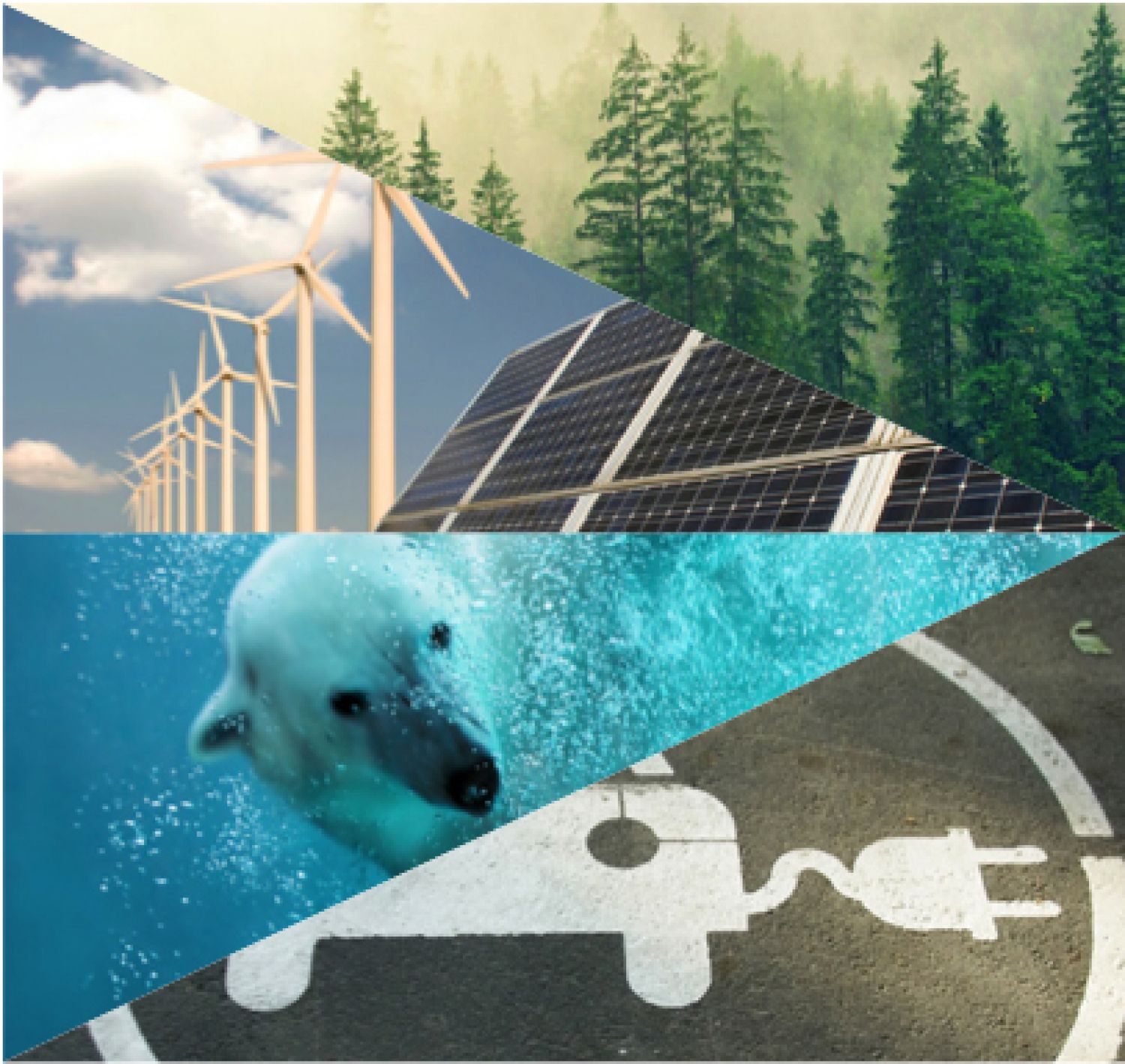Overview
University of Florida Research Reveals How to Make Climate Change Education Impactful
Well-designed climate change education can have a tremendous impact.
It is essential to helping people of all ages understand climate change and take informed action in communities around the world. But what does well-informed climate change education look like?
To understand the most effective strategies for climate change education, experts at the University of Florida (UF) conducted a systematic review of empirical research to explore the impact of climate change education efforts.
Bottom Line
UF’s analysis of peer-reviewed research revealed that climate change education programs achieve a variety of positive outcomes. Most commonly, programs increase climate knowledge, but they also can impact learners’ level of concern about climate change, their problem-solving skills, and behaviors.1 Effective climate change education programs are personally relevant and meaningful, use engaging teaching strategies, encourage deliberative discussion to explore and navigate disagreements and controversial issues, engage participants in the scientific process, address misconceptions, and/or incorporate school or community projects for participants to take action.
In Summary
UF’s research review suggests that climate change is best taught with effective, well-tested education methods of experiential activities around relevant and meaningful impacts of climate change. In addition, effective climate change education can help build problem-solving skills by engaging learners in classroom and community projects to increase awareness. Finally, students learn more if they are prompted to assess their own ideas, talk through the evidence, and explain their thinking. Understanding and applying some or all of these strategies for climate change education can help educators improve their practice and deepen their participants’ learning.
References
1 Monroe, M., Plate, R., Oxarart, A., Bowers, A., and Chaves, W. (2017). Identifying effective climate change education strategies: A systematic review of the research. Environmental Education Research, https://doi.org/10.1080/13504622.2017.1360842(link is external). Articles included in the systematic search were limited to those written in English to facilitate analysis.
Key Findings
University of Florida’s research review suggests that climate change is best taught with effective, well-tested education methods of experiential activities around relevant and meaningful impacts of climate change.
Download the full Executive Summary
Snapshot of Findings
Effective climate change education is good science education.
- It is personally relevant and meaningful.
Climate change is complicated. To make it easier to understand and more personally relevant, educators can use programs that explore local environmental impacts of climate change, such as sea-level rise, a shift in weather patterns, the spread of invasive species, and changes in water quality or quantity. Students can also learn about changes in natural cycles—from when plants bloom to when animals migrate. - It engages learners.
Experiential learning actively involves students as they learn about climate science, impacts, and solutions. For example, participants can examine their own lifestyle choices to calculate their emissions of rampant carbon dioxide. This differs from regular carbon dioxide emissions, in that it is produced by burning fossil fuels like coal and natural gas for energy.2 Inquiry-based science lessons can help participants better understand climate science and systems interactions. In addition, small group discussions and interactive assignments can be helpful, as learners reflect on their experiences and ideas. - It enables learners to experience the scientific process.
Climate science is most engaging when participants actively collect and analyze data, use computer models, and interact with scientists. Some programs stressed the process of interpreting data so that participants can reach their own conclusions about climate change and gain critical thinking skills.
Effective climate change education is good environmental education.
- It uses personal, school, and community projects to build skills.
Some students changed their personal habits, while others planted trees or created videos for social media to increase others’ climate awareness. These personal, community, and classroom projects can help support problem-solving skills, build self-efficacy, and boost civic engagement.
Effective climate change education helps participants learn in the face of controversy.
 It uses deliberative discussion.
It uses deliberative discussion.
The students had a variety of recommendations about how to address the climate crisis. When participants were engaged in articulating and defending their ideas, and explaining how they arrived at their conclusions, they showed an improved understanding about climate science and solutions. These strategies were also helpful in understanding why perceptions of climate change vary.- It addresses misconceptions.
The variety of commonly held misconceptions about climate change presents challenges to educators. Educators must recognize common and often subconscious thinking in learners and in themselves, and work to overcome them with analogies, experiments, or well-placed questions.
In Summary
UF’s research review suggests that climate change is best taught with effective, well-tested education methods of experiential activities around relevant and meaningful impacts of climate change. In addition, effective climate change education can help build problem-solving skills by engaging learners in classroom and community projects to increase awareness. Finally, students learn more if they are prompted to assess their own ideas, talk through the evidence, and explain their thinking. Understanding and applying some or all of these strategies for climate change education can help educators improve their practice and deepen their participants’ learning.
2 “Getting to the Heart of the Matter - FrameWorks Institute.” Accessed 12 Aug. 2020.
Tools
Based on the University of Florida's review, we have translated these findings into several communication tools for EE professionals to use to substantiate their work and bolster support for climate education. These tools include pull quotes, statistics, researcher observations, inspiring stories from across the field substantiated by empirical studies, and more.
We have developed three communications tools associated with the University of Florida's research review:
Executive Summary
A summary of the University of Florida’s key findings with pull quotes and statistics, compelling stories, and researchers’ observations across the field.
Strategies
View the six strategies for enhancing and improving Climate Change Education based on the research.
Messaging Guide
Guidance for promoting the benefits of Climate Change Education with key audiences.
Process
From Anecdotes to Evidence: Diving into the Research Review Process
Download the Research Review Process
What is the impact of environmental education (EE)? What outcomes are important in the field? What do EE programs strive to attain, with which audiences, and in what settings? What existing evidence documents effective approaches related to the range of desired EE outcomes?
Questions like these motivated NAAEE and colleagues, including an expert Advisory Board, to develop eeWORKS, an initiative to coalesce existing research within the field through a series of systematic literature reviews.
The eeWORKS team at NAAEE, along with researchers at collaborating universities, focuses on a three-part process to:
- Identify relevant outcome areas and themes of interest.
- Conduct research reviews.
- Communicate and share.
Research
Increased interest in climate change education and the growing recognition of the challenges inherent to addressing this issue creates an opportunity to conduct a systematic review to understand what research can contribute to our ideas about effective climate change education. An academic database, EBSCOhost, was used to identify 959 unique citation records addressing climate change education. Of these, 49 sources met the criteria of focusing on assessment of climate change education interventions. Analysis of these sources examined the intervention purpose, assessment methodology and identified strategies that might result in effective interventions. Two themes were identified that are common to most environmental education: (1) focusing on personally relevant and meaningful information and (2) using active and engaging teaching methods. Four themes specific to issues such as climate change were also generated: (1) engaging in deliberative discussions, (2) interacting with scientists, (3) addressing misconceptions, and (4) implementing school or community projects. Suggestions for addressing controversial topics like climate change are offered.
Keywords: Climate change, environmental education, systematic review
Journal article
A synthesis of the University of Florida's comprehensive review of the literature exploring effective climate change education strategies, published in the Environmental Education Research Journal.



